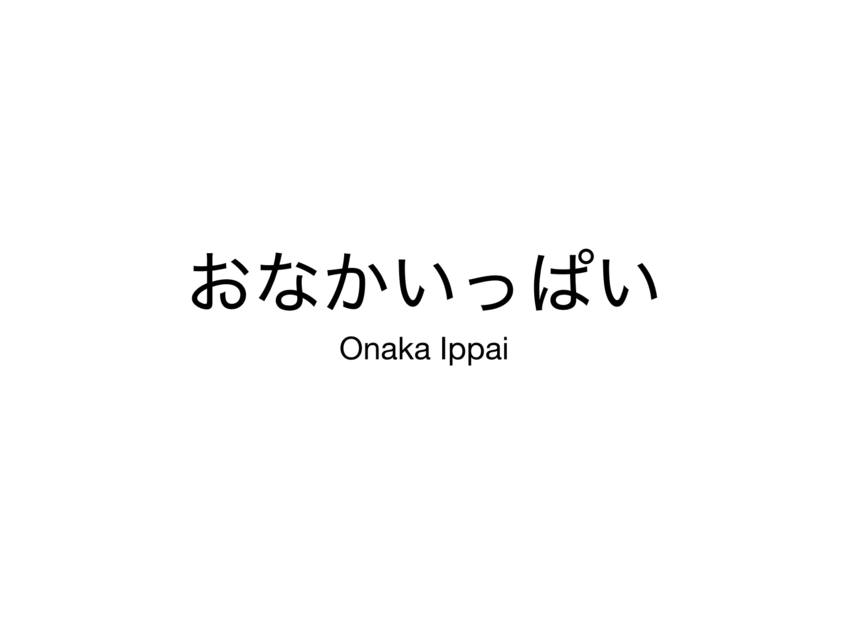- Hashtag "#onlyinjapan" returned 786 results.
 おなかいっぱい Onaka Ippai
おなかいっぱい Onaka Ippai
おなか = Onaka = Stomach
いっぱい = Ippai = Full
I am full.
おなかいっぱい
おなか が いっぱい
おなか が いっぱい です。
わかりました -> I understand
Wakarimashita
わかりません -> I don't understand
Wakarimasen
http://www.japanese-online.com
![だめです]() だめです
だめです
だめです is a statement saying "No".
You can simply say だめ as well.
ともだち
友達
tomodachi
Friend!
じゃあ
Although you probably know さようなら (sayounara) is “goodbye,” it has a very strong sense of finality, almost like you may not see that person again. So it’s often better to say じゃまた. Other variations are じゃね (ja ne: “see you”), バイバイ (baibai: “bye-bye”), and お元気で (o-genki de: “take care”).
Source: https://www.fluentin3months.com/japanese-words/
いくらですか ikuradesuka is phrase you use to ask for pricing.
これは(Korewa)いくらですか。How much is this?
あれは(Arewa)いくらですか。How much is that?
I want to go _____
_______ いきたい。行きたい。ikitai.
こうえん いきたい。
Wants to go to a park.
トイレ いきたい。
Wants to go to a bathroom.
ドライブ いきたい。
Wants to go to a drive,
だいすき
だい = 大 = dai = Big
好き = 好き = suki = Like
あなた大好き I love you a lot.
ラーメンだいすき I love Ramen.
すごい 'Sugoi' is a common Japanese word, usually written in kana alone, generally meaning 'great' or 'amazing'.
すごくない means two things.
(1) Not Great
(2) Great, isn't it?
だめ menas "No"
だめだめ is used to express casually "No".
だめです Damedesu is more formal.
だめだ Dameda is telling your self "Impossiblle'
だめだよ Damedayo is telling someone "No"
- If you are a bloguru member, please login.
Login
- If you are not a bloguru member, you may request a free account here:
Request Account